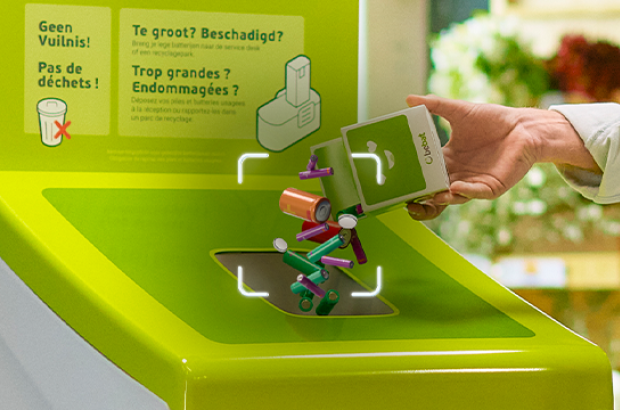- Daily & Weekly newsletters
- Buy & download The Bulletin
- Comment on our articles
Belgium achieves record battery collection rate
Belgium has surpassed all previous battery collection rates, collecting more than 4,000 tonnes of used batteries in 2024, battery collection organisation Bebat has announced.
With this level, Belgium is reportedly the world champion when it comes to battery collection per person per year.
The 4,029 tonne collection rate recorded last year represents a 3% increase on 2023, while the number of new batteries placed on the market fell by 4%, RTBF reports.
This means that Bebat collected 60.3% of batteries put on the market in Belgium last year.
"It would be wrong to assume that the remaining batteries disappear into household waste," Bebat said. "The legal standards do not take sufficient account of the long life of a battery, which is six years on average."
The 60.3% rate easily meets Belgium’s legal target and far exceeds the European Union (EU) goal of 45% by 2024 under the July 2023 EU batteries regulation.
For Bebat, the record rates can be attributed to the ease of disposing batteries in Belgium – with more than 25,000 collection points all over the country.
The largest collections are from businesses, followed by container parks, supermarkets and schools.
Bebat said that battery collection has become a habit for many Belgians, who have a fairly large stock. The average household possesses 128 batteries, including 29 used batteries.
Some 72% of used batteries are sorted at home and returned to a Bebat collection point, with 15% sorted at home but never returned. Batteries are often stocked in a Bebat box or one of the Bebat collection bags.
All batteries collected across the country are sent to Bebat’s sorting centre in Tienen.
“We sort all the batteries, sometimes 20,000 a day, by size, chemical composition and so on… so when we send them to the recyclers, they will be able to recycle them according to their chemical family,” said Bebat spokesperson Fatima Boudjaoui.
“In other words, we will be able to recover these raw materials to manufacture new objects.”
Collection of lithium-ion batteries also rose sharply in 2024 – with some 100 tonnes more of this type of battery collected than in 2023.
Lithium-ion technology accounts for a significant proportion of all batteries on the market. This growth is mainly due to the intensive use of devices such as smartphones and laptops, and that there are twice as many electric or hybrid vehicles in Belgium.
Bebat – set up in 1995 by battery manufacturers to meet their legal take-back obligations under the 2006 batteries directive - to be replaced by the 2023 EU batteries regulation – made 29,273 collections in 2024 from 22,672 collection points.
Belgians return their batteries two to three times a year, with 5% admitting they put them in general household waste.
However, nearly all Belgians (97%) are aware of the collection system for used batteries, Bebat said. And while up until 2010, only 56% of Belgians knew about the Bebat brand, this figure has now risen to more than 91%.

















